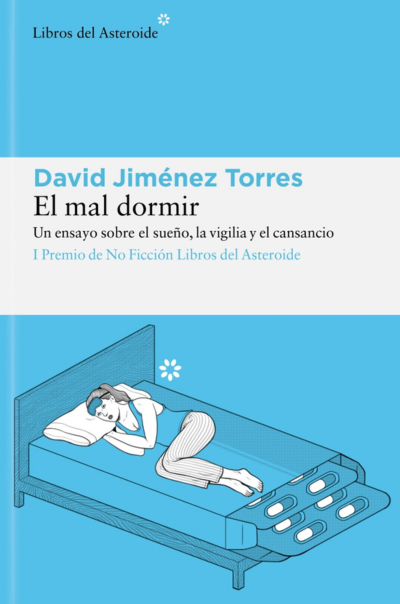On April 28th, Spaniards will go to the polls for general elections. With them, it returns, unconsciously, the voting syndrome, which is based on the reasoning «I can vote, therefore I live in a democracy». A common assumption in the current world order and that seems to characterise it. However, the definition of this new international liberal order lacks consensus. For some, it is the opposite of authoritarianism —political liberalism—; for others, the opposite of mercantilism or autarchy; while some oppose it to realism —international relations theorists. What is common to these three meanings is, in theory, the existence of rules of the game —laws— on the powers of the State and the role of civil society, which fit better into democratic systems of government. In this context, it is convenient to review the work The Spirit of the Laws, by Montesquieu, one of the great thinkers of formal democracy and who established the three requirements that any government of this type must meet: separation of powers —executive, legislative and judiciary—, representative system and judicial independence. Therefore, calling into question these three requirements of institutional gear implies, among other things, declaring death to Montesquieu.
With regard to the separation of powers, in Spain, it can be observed frequently that the government, and more specifically the party in power, usually transmits to the Legislative a message: “I am the legislator, the one who executes the laws , and the one who appoints the judiciary. ” Just rewatch speeches by José Luis Rodríguez Zapatero, Mariano Rajoy, Pedro Sánchez, etc. to verify that political power is neither divided nor separated. The immediate consequence is, as Montesquieu pointed out, an «inevitable corruption». A thesis that supports article 16 of the The Declaration of the Rights of Man and of the Citizen, which states that there is no constitution if there is no separation of powers.
As for the second pillar of democracy, the representative system, now that the general elections are coming, two issues must be warned. First, the electoral system of closed lists in the case of the Congress of Deputies; and second, the structural oligarchy of the parties, by which politicians represent them, Parliament as well, and parties represent themselves. Both realities constitute, basically, an attack on the representation that must occur in a democratic government, and that Montesquieu considers the source from which all the powers of the State emanate. What happens is that individual freedoms —consequences of rights— are confused with collective political freedom, which does emanate from an effective representation of the electorate and civil society.
Finally, within the framework of the judiciary, Montesquieu said that for the exercise of supervision over the executive and the legislature, that third power must have control over the constitutionality of the laws. If this circumstance does not occur, «le pouvoir judiciaire est presque nul» —the power of the judiciary is almost null. If the constitutional power is not constituent, but constituted, it becomes a source of political corruption, to the extent that the ability to control and/or interpret the Constitution is attributed in advance.
In addition to these three requirements, which are not met in Spain, there are two other issues that are also framed within the axial axis of a democratic Executive: the principle that rules the system of government, and education.
On the first, Montesquieu established that the principle of the monarchy is honor; that of despotism, fear; and that of democracy, virtue. Regarding the latter, he understands the political virtue that, for him, has a moral category, insofar as it implies self-denial towards the general good. Unfortunately, it has been transformed into what might well be called ‘financial speculation’. In the past, men were free with the laws; today, they pretend to be free against them. Before, the fortunes of individuals formed the public treasure; today, the public treasure is the patrimony of individuals. Consequences of having abandoned the Montesquian political virtue.
A weak separation of powers, putting brakes on representation and a judicial power of doubtful independence declare the death of Montesquieu and formal democracy
With regard to the state of education in the current liberal order, in general, and in Spain in particular, it is worrying. Thus, a small group of individuals, misrepresenting the functions of the State and its institutions, are forcing educational laws so that they are aimed at providing us with skills that allow us to do much in a short time, and focus on speculation, the primacy of income, and the accommodation in the routine, in order to build a market that suits and serves themselves. Hence the tendency to eliminate in some subjects such as Religion, Philosophy, History… and all those that foster a critical spirit. That would prevent us from forming a queue to pay tribute to that non-market based on, for example, financial speculation and the use of the State for its own benefit. Montesquieu recalled that the laws of education in a democracy must be consistent with the principle of this, the aforementioned political virtue, which is in danger of extinction. It is threatened by that small nucleus of selfish individuals, who, taking advantage of the seduction of talisman terms —in the words of López Quintás— such as freedom and the market, intend to assert what is simply personal ambition, illusion and manipulation.
Finally, under the aegis of the current liberal order, Montesquieu is declared dead and, with him, formal democracy, through a weak separation of political power, from brakes to representation, and from a questionable independence of the judiciary. Circumstances that turn Spain into a breeding ground for corruption.
Therefore, and facing the next general elections, a reform of the Spanish Constitution should be urgently addressed —recognizing and knowing how to forgive the mistakes made—, to resuscitate Montesquieu and, thus, strengthen democracy.






